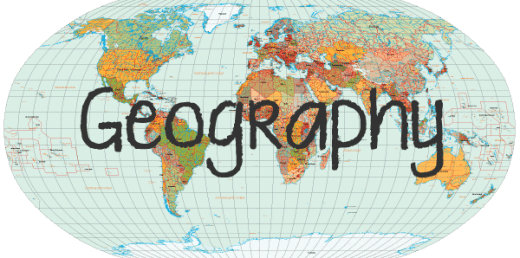

The purpose for teaching Geography
At Eastfield Primary School, our Geography curriculum is designed to equip children with a foundation of basic geographical skills whilst developing children’s curiosity and fascination about the world and its people that will remain with them for the rest of their lives.
The teaching and learning of Geography
Our children’s learning journey starts in pre-school and reception, where they explore and gain an understanding of people, culture and communities. The geography units use the 2014 National Curriculum as its foundation for key stage 1 and 2. Content includes full coverage of these statements and links are made so that knowledge is built upon each year. Geography is present in all classrooms through either a large map or globe which enables learners to make connections with their geographical understanding even when a geography lesson is not in progress.
Through their work in Geography, children learn about their local area and compare this with other regions of the United Kingdom and the rest of the world. Pupils learn location and place knowledge as well as geographical skills such as using maps, atlases and globes. With their growing knowledge and understanding of human geography, children gain an appreciation of life in other cultures. In addition, children will study a variety of physical features using subject specific vocabulary. Through teaching, enquiry and research, children are equipped with knowledge about diverse places, people, resources and natural and human environments, together with a deep understanding of the Earth’s key physical and human processes. In years 1 – 6, geography is covered in the first half of each term with an end goal for each unit of work.
The outcomes of our Geography curriculum
By the time children leave Eastfield, they have a clear understanding of what it is like to live in a range of places around the world, knowledge of a wide range of physical and human features and a variety of geographical skills to use in the real-world.
Fieldwork studies are planned for each year group which involve a trip into the locality to investigate their learning or sometimes further afield, as part of a residential. These opportunities mean that learners can apply skills in a real-life context. Existing knowledge is assessed at the beginning of each new unit and recap questions are discussed at the beginning of each lesson; this ensures that learners are continuously being provided with opportunities to revisit and strengthen their understanding of concepts already covered. Lesson content and tasks are designed to provide appropriate challenge to all learners, in line with our commitment to inclusion. It is important that children develop the skills of a geographer by fully immersing them in all areas of the subject.
The genuine end goal provides learners with a clear purpose as they navigate the learning journey and provides an opportunity for them to showcase the knowledge they have acquired.
Extended Learning Opportunities
Links for websites:
https://www.seterra.com/ – includes fun quizzes that help familiarise you with countries, capital cities, flags, rivers, lakes, and notable geological features.
https://www.wwf.org.uk/ – find out what you can do to help nature conservation.
https://www.bbc.co.uk/bitesize/articles/zckrkhv#zygy8p3 – play fun online games from BBC Bitesize.
